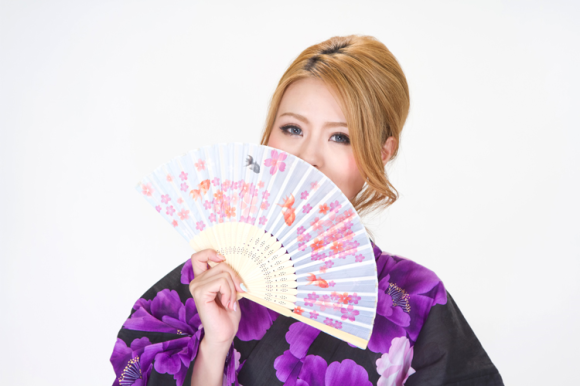The other day, my wife and I spent the day hanging out at the beautiful and awesome Hitachi Seaside Park. As we headed towards the exit at dusk, I pointed to a grove of trees with the sun setting behind them and got to bust out one of my favorite five-dollar Japanese vocabulary words: komorebi.
In retrospect, two things come to mind. First, shouldn’t a five-dollar Japanese word really be a 500-yen word? And second, why is it that the Japanese language has vocabulary as specific as komorebi, meaning “sunlight filtering though trees,” yet doesn’t have a good equivalent for *#&!, %?$!, or even &*!$?
Heads up! The following discussion of profanity contains language that might best be read when you’re not at work or school.
We recently stumbled across an Internet debate prompted by the question, “Is swearing in Japan considered taboo?” It’s kind of a hard question to answer, since for the most part, Japanese doesn’t have anything that works like English profanity.
It’s not that no one ever has aggressively angry thoughts in Japan. Sure, Japanese society puts a lot of value on politeness and stoicism, but step on someone’s foot one too many times or sleep with one too many of their sisters, and they’ll be sure to let you know, in no uncertain terms, that they’re pissed. They probably won’t use anything that could be absolutely classified as a curse word, though.
▼ And the reason isn’t that everyone in Japan is just really good at giving stink eye.
First off, let’s try to pin down exactly what a “curse word” is. It can’t just be that the meaning is distasteful. For example, if I say, “Taro inserted his penis into your girlfriend, rigorously and repeatedly,” you’re definitely going to be angry, but it’s the message, not the vocabulary, that’s provoking that response.
To be a curse word, then, the power to offend has to be in the word itself. The F-word, for instance, doesn’t really have its impact affected by the context in which it’s used. If you’re talking to your mom, and you drop an F-bomb, how upset she is with you isn’t going to change based on the sentiment you’re trying to convey or your tone of voice. Just saying the word is enough to make her feel insulted.
Going by that definition, Japanese doesn’t really have much in the way of curse words. That’s not to say it completely lacks them, as there’re a few slurs for certain ethnic groups still rattling about, which are thankfully becoming less common as death thins the ranks of old-school racists.
Aside from those derogatory terms, I’ve only come across two words that universally provoke an angry or shocked reaction, no matter how they’re said. One is manko, a vulgar way of referring to the vagina (it’s basically the Japanese version of “cunt”).
▼ Just so you know, it probably won’t be on any levels of the next Japanese Language Proficiency Test.
The second instantly offensive word I’ve run into? Teme. What’s it mean?
You.
▼ Wait a second, are you really that offensive?
So what makes teme so bad? Well, in Japanese, there are tons of pronouns and verb endings that can imply a difference in social or hierarchical level between the speaker and listener. Anata puts the speaker and listener on equal ground, which is why it’s what you’ll find in textbooks. Teme, though, indicates that you think there’s a huge gap between you and the person you’re talking to. As a matter of fact, it’s so big that it’d be impossible for you to be that far above him if he wasn’t a complete asshole, and since that insult is always implied by teme, it attains swear word status.
Teme is an extreme case, though. Ususally, that ability to show a difference in status turns out to be the main reason Japanese doesn’t need curse words to show strong emotion. If you’ve watched much anime, no doubt you’ve heard characters shout “Kuso!” when they’re angry, prompting the subtitle, “Shit!” to flash onscreen. But while kuso can have that hard of an edge to it, the word doesn’t always feel that way to Japanese listeners.
Imagine someone asks if you’re any good at soccer, and you describe your skills as heta kuso, literally “unskilled excrement.” Depending on your tone of voice, inflection, and other modifiers, it can be as harsh as saying, “I suck ass at soccer,” but could also be taken as the much softer “I stink at it.”
▼ Soccer is the one with the dribbling and nets, right?
The word even shows up in the gross but innocuous phrase hana kuso, “nose excrement,” which is just the Japanese term for “booger.”
While their literal meanings are the same, kuso only takes on the same offensiveness as the English “shit” when it’s said with sufficient spite or anger in a situation that causes those emotions. Similarly, kono yarou often gets translated as “you bastard,” but again, the words themselves aren’t profane without the right amount of contempt in your voice, since they just mean “this guy.”
Aside from kuso, there aren’t even any grey-area curse word candidates that show up in normal conversation. Instead, those verb modifiers we talked about previously do the job of giving your speech enough bite.
For example, let’s say you and some guy are about to throw down. As you wind up for a haymaker, you might think to add a battle cry of bukkorosu, literally, “I’m going to hit and kill you.”
▼ Sometimes, Japanese is a very colorful language.
Using the word in its standard form would keep things pretty PG-13, along the lines of “I’m gonna drop you!” or “I’m gonna mess you up!” Change plain old bukkorosu to bukkorshite yaru, which adds in the nuance that your opponent is lower than you (sort of like a milder version of teme), and now the effect is closer to “I’m gonna kick your ass!” or “I’m gonna f*** you up!”
It’s not just bukkorosu that you can do this sort of thing with, either. You can tweak just about any Japanese verb in similar ways. Let’s look at the word fuzakeru, which means “to joke or say foolish things.”
Normally, to make negative commands in Japanese, you cut the last syllable and then tack on -nai de, and you can also follow it up with kudasai, “please.” So, from fuzakeru, you could make Fuzakenaide kudasai, which is a rather polite way of saying, “Don’t joke around,” or “Don’t tease me like that.”
▼ “Otherwise, I’m liable to coquettishly drop my fan (tee hee)!”
But there’s another way to make negative commands in Japanese, where you just stick na after the verb. Double this up with the forcefully emphatic yo, and now you’ve got “Fuzakeru na yo,” or “Don’t bullshit me!” Still not enough? Twist it once more and forcefully spit out “Fuzaken na yo,” and it’ll come across as strongly in Japanese as “Don’t you f***ing bullshit me!” does in English.
So to answer the question, if you’re speaking in Japanese, there aren’t a whole lot of “taboo swear words” you’ll have to remember to avoid in polite conversation. On the other hand, Japanese has as many ways as any other language to verbally upset and offend, making sure you never get called back for a second job interview or a second date.
After running through so many of them, we’re feeling just a little dirty, and also in need of a soothing linguistic palate cleanser.
▼ Komorebi, komorebi…
Insert images: Pakutaso


 Foreign English teachers in Japan pick their favorite Japanese-language phrases【Survey】
Foreign English teachers in Japan pick their favorite Japanese-language phrases【Survey】 Seven mistakes foreigners make when speaking Japanese—and how to fix them
Seven mistakes foreigners make when speaking Japanese—and how to fix them BuzzFeed’s video of “anime expressions” delivers more laughs than useful language pointers
BuzzFeed’s video of “anime expressions” delivers more laughs than useful language pointers Japanese students despair over the many, MANY ways you can describe a dead flower
Japanese students despair over the many, MANY ways you can describe a dead flower Wait, the Japanese word daijoubu can mean both “yes” and “no?” Why? HOW?!?
Wait, the Japanese word daijoubu can mean both “yes” and “no?” Why? HOW?!? Foreigner’s request for help in Tokyo makes us sad for the state of society
Foreigner’s request for help in Tokyo makes us sad for the state of society Japanese city loses residents’ personal data, which was on paper being transported on a windy day
Japanese city loses residents’ personal data, which was on paper being transported on a windy day Seaside scenery, history, and so many desserts on Yokohama’s Akai Kutsu【Japan Loop Buses】
Seaside scenery, history, and so many desserts on Yokohama’s Akai Kutsu【Japan Loop Buses】 Harajuku Station’s beautiful old wooden building is set to return, with a new complex around it
Harajuku Station’s beautiful old wooden building is set to return, with a new complex around it Japan’s summertime towelket pillowcases are even better with the addition of Ghibli stars【Photos】
Japan’s summertime towelket pillowcases are even better with the addition of Ghibli stars【Photos】 Should you add tartar sauce to Japanese curry rice? CoCo Ichi makes diners an unusual offer
Should you add tartar sauce to Japanese curry rice? CoCo Ichi makes diners an unusual offer Mt. Koya planning to instate visitor’s tax to cope with huge tourist numbers
Mt. Koya planning to instate visitor’s tax to cope with huge tourist numbers Red light district sushi restaurant in Tokyo shows us just how wrong we were about it
Red light district sushi restaurant in Tokyo shows us just how wrong we were about it Tokyo Tsukiji fish market site to be redeveloped with 50,000-seat stadium, hotel, shopping center
Tokyo Tsukiji fish market site to be redeveloped with 50,000-seat stadium, hotel, shopping center Smash Bros. director Sakurai stabs Kirby in the face, has delicious justification for it
Smash Bros. director Sakurai stabs Kirby in the face, has delicious justification for it McDonald’s new Happy Meals offer up cute and practical Sanrio lifestyle goods
McDonald’s new Happy Meals offer up cute and practical Sanrio lifestyle goods Japanese ramen restaurants under pressure from new yen banknotes
Japanese ramen restaurants under pressure from new yen banknotes French Fries Bread in Tokyo’s Shibuya becomes a hit on social media
French Fries Bread in Tokyo’s Shibuya becomes a hit on social media Studio Ghibli releases new action figures featuring Nausicaä of the Valley of the Wind characters
Studio Ghibli releases new action figures featuring Nausicaä of the Valley of the Wind characters New private rooms on Tokaido Shinkansen change the way we travel from Tokyo to Kyoto
New private rooms on Tokaido Shinkansen change the way we travel from Tokyo to Kyoto Beautiful Ghibli sealing wax kits let you create accessories and elegant letter decorations【Pics】
Beautiful Ghibli sealing wax kits let you create accessories and elegant letter decorations【Pics】 Studio Ghibli releases Kiki’s Delivery Service chocolate cake pouches in Japan
Studio Ghibli releases Kiki’s Delivery Service chocolate cake pouches in Japan New definition of “Japanese whiskey” goes into effect to prevent fakes from fooling overseas buyers
New definition of “Japanese whiskey” goes into effect to prevent fakes from fooling overseas buyers Our Japanese reporter visits Costco in the U.S., finds super American and very Japanese things
Our Japanese reporter visits Costco in the U.S., finds super American and very Japanese things All-you-can-drink Starbucks and amazing views part of Tokyo’s new 170 meter-high sky lounge
All-you-can-drink Starbucks and amazing views part of Tokyo’s new 170 meter-high sky lounge More foreign tourists than ever before in history visited Japan last month
More foreign tourists than ever before in history visited Japan last month New Pokémon cakes let you eat your way through Pikachu and all the Eevee evolutions
New Pokémon cakes let you eat your way through Pikachu and all the Eevee evolutions Disney princesses get official manga makeovers for Manga Princess Cafe opening in Tokyo
Disney princesses get official manga makeovers for Manga Princess Cafe opening in Tokyo Sales of Japan’s most convenient train ticket/shopping payment cards suspended indefinitely
Sales of Japan’s most convenient train ticket/shopping payment cards suspended indefinitely Sold-out Studio Ghibli desktop humidifiers are back so Totoro can help you through the dry season
Sold-out Studio Ghibli desktop humidifiers are back so Totoro can help you through the dry season Japanese government to make first change to romanization spelling rules since the 1950s
Japanese government to make first change to romanization spelling rules since the 1950s Ghibli founders Toshio Suzuki and Hayao Miyazaki contribute to Japanese whisky Totoro label design
Ghibli founders Toshio Suzuki and Hayao Miyazaki contribute to Japanese whisky Totoro label design Doraemon found buried at sea as scene from 1993 anime becomes real life【Photos】
Doraemon found buried at sea as scene from 1993 anime becomes real life【Photos】 Tokyo’s most famous Starbucks is closed
Tokyo’s most famous Starbucks is closed One Piece characters’ nationalities revealed, but fans have mixed opinions
One Piece characters’ nationalities revealed, but fans have mixed opinions We asked a Uniqlo employee what four things we should buy and their suggestions didn’t disappoint
We asked a Uniqlo employee what four things we should buy and their suggestions didn’t disappoint Princesses, fruits, and blacksmiths: Study reveals the 30 most unusual family names in Japan
Princesses, fruits, and blacksmiths: Study reveals the 30 most unusual family names in Japan “Same sh*t different day” – Nice Japanese people swearing in English 【Video】
“Same sh*t different day” – Nice Japanese people swearing in English 【Video】 English conversation school in Japan has clever reminder that students don’t have to be perfect
English conversation school in Japan has clever reminder that students don’t have to be perfect Foreign shop clerk and Japanese customer fail to communicate because of Japanese language quirk
Foreign shop clerk and Japanese customer fail to communicate because of Japanese language quirk Pen-Pineapple-Apple-Pen singer barks like a mad dog in music video for newest song【Video】
Pen-Pineapple-Apple-Pen singer barks like a mad dog in music video for newest song【Video】 Japan’s second-largest convenience store chain changes service policy for sake of foreign workers
Japan’s second-largest convenience store chain changes service policy for sake of foreign workers Learners beware! Even Japanese people agree that their language can be really ambiguous
Learners beware! Even Japanese people agree that their language can be really ambiguous RocketNews24’s six top tips for learning Japanese
RocketNews24’s six top tips for learning Japanese The three ways to say “love” in Japanese, and when to use them
The three ways to say “love” in Japanese, and when to use them Five words that sound completely different across Japanese regional dialects
Five words that sound completely different across Japanese regional dialects Japanese Internet sad to see the word “chikan” becoming commonly used in English
Japanese Internet sad to see the word “chikan” becoming commonly used in English No good at saving money? You may have your mother tongue to blame for that
No good at saving money? You may have your mother tongue to blame for that What’s wrong with English education in Japan? Pull up a chair…
What’s wrong with English education in Japan? Pull up a chair… Put away your textbooks, kids – the key to learning Japanese is Minecraft
Put away your textbooks, kids – the key to learning Japanese is Minecraft North Japan prefecture creates guide to help new foreign workers understand local language quirks
North Japan prefecture creates guide to help new foreign workers understand local language quirks F**k it! Japan’s most respected newspaper prints a double-dose of uncensored F-bombs
F**k it! Japan’s most respected newspaper prints a double-dose of uncensored F-bombs
Leave a Reply